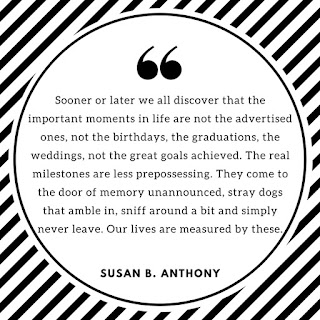Over the last six months or so I've been practicing yoga two, three, sometimes four times a week. I have my regular teachers at the local YMCA that I love, but I have also enjoyed community yoga, dropping in to take a class with a different studio nearly every Saturday. And here in Grand Rapids, also known as Beer City USA, I have fun attending yoga at different breweries. Last weekend, 104 of us took to our mats at Perrin Brewery. And this morning, I was planning to attend one of my monthly favorites, a yoga session at Founders Brewery with one of my favorite studios. I have the tickets. I was ready to go. But I woke up this morning feeling knocked down by this lingering cold.

I am someone who pushes myself, always looking ahead, planning for the next lesson, next unit, next event. Yoga has taught me to slow down, to be present for the present, attend to how I am feeling in the moment. So although I am bummed about not attending one of my favorite yoga sessions this morning, I also grateful and aware of just how practicing yoga has changed me.
Six months ago, I would have pushed myself and attended this morning's sweaty session, coughing and sputtering my way through, coming home tired, drained, and likely worse for wear. Instead, I recognized this morning that I needed to slow down, take an easy morning at home with my family to nurse my cold. And I am so glad I did.
This morning, my boys decided to dress in their suits for no particular reason. My eldest grabbed his recent library find and curled into a corner to read. My youngest announced proudly that he was dressing up in order to play a special session of Dungeons and Dragons with their dad. My eldest quickly agreed that this was the best idea his younger brother had ever had. The game is still going on. My boys are sprawled on the living room floor in front of the fireplace rolling die and talking about cobalts and hobgobblins. I love listening in on their conversations. They are building a world together, crafting stories. My youngest is drawing a map. My eldest is contemplating strategies. And I am grateful for this moment, for being present.
So often I find that I am rushing. Rushing to get to work, to pick up my children from school, to get to practice, or the store, or the bank, or the... But this rushing around creates so much tension, so much stress both for me and for those around me, my family and my students. I have learned through yoga to slow down, breath, and let the present be a present, a gift. Rushing around, being busy all the time, does so much more harm than good. Being present, having the presence of mind to slow down and be grateful for the moment I am in, takes practice.
I am reminded of a powerful video that John Spencer animated about a year ago asking teachers, really asking all of us, to stop wearing busy like a badge of honor.
This morning I am grateful to have the presence of mind to be present.















